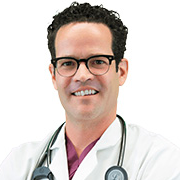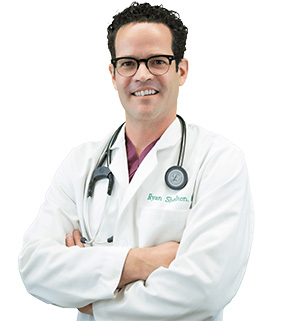You’re probably like over two-thirds of American who take at least one dietary supplement every day, and if you look at the ingredients of that supplement, it probably contains at least one antioxidant. However, if you take just one antioxidant or the wrong kind of antioxidant, it may cause more damage than good.
Antioxidants: The Good, The Bad (And The Ugly!)
How are Free Radicals Affecting You?
 We are constantly inundated by free radicals from our environment and within our bodies. We each have over 37 trillion cells, plus bacteria and microbes, but free radicals are always stealing electrons in an attempt to stabilize themselves. In doing so, they begin a chain reaction which can damage cell membranes, mitochondria, and alter your DNA. If left unchecked, it can wreak havoc on your body, affecting your immune system, accelerating aging, and making you more vulnerable to chronic diseases like cardiovascular disease, diabetes, Alzheimer’s, and vision and hearing changes.
We are constantly inundated by free radicals from our environment and within our bodies. We each have over 37 trillion cells, plus bacteria and microbes, but free radicals are always stealing electrons in an attempt to stabilize themselves. In doing so, they begin a chain reaction which can damage cell membranes, mitochondria, and alter your DNA. If left unchecked, it can wreak havoc on your body, affecting your immune system, accelerating aging, and making you more vulnerable to chronic diseases like cardiovascular disease, diabetes, Alzheimer’s, and vision and hearing changes.
Our bodies can counterattack by generating antioxidants to extract free radicals and help protect us. We also have enzyme systems like catalysts, superoxide dismutase, and glutathione paroxetine, and thioredoxin. There’s a catch though. Those electrons have to go somewhere out of the body so they’re not causing damage.

Consuming an antioxidant-rich diet full of fruits and vegetables, essential fatty acids, and functional foods can play a positive role, but many of us need additional support from dietary supplements. The buzz around antioxidants took off in the early ‘90s as the connection between oxidative damage, chronic inflammation, and chronic disease became increasingly clear. Additionally, studies came out showing that individuals who consumed a high content of antioxidants in their diet through fruits, vegetables, and fatty acids were at a lower risk of chronic disease than those individuals who did not.
Marketers began adding antioxidant-related claims to all sorts of foods and beverages, so in 1997 the FDA introduced rules about having to be specific with labeling. Companies had to list the antioxidants specifically as Vitamin C, Vitamin E, lutein, zeaxanthin, beta-carotene, lycopene, polyphenols, proanthocyanidins, quercetin, or catechins.
Antioxidants don’t work in the same ways but rather work together as a matrix, always regenerating and recycling. For instance, if your cellular membranes are being attacked by free radicals, essential fatty acids and vitamin E can help rid your body of those electrons while quercetin or ubiquinol can take care of those free radicals. Each antioxidant has its cycle of regeneration so if you’re taking just one antioxidant, you’re not paying attention to all the different pathways and cycles. Instead of relying on marketing claims, you need to figure out which supplements are worth your money and time.
What Kind of Antioxidants Should You Take?

You should take a specific supplement based on your individual health goals. A 60-year-old with joint pain has different needs than a 30-year-old who’s struggling with sleep and insomnia. Looking specifically at mitochondria, which are in every cell of your body and are the energy producers. When mitochondria are damaged by free radicals, you experience changes in your sleep, muscle strength, aging, thyroid, and lipids. You can experience diabetes, cardiovascular disease, and dementia. One in 5000 individuals are affected by free radical damage to mitochondria, and making sense of all the information out there can be overwhelming.

There’s a ton of conflicting information online and much of it is pushed by people trying to sell you specific supplements. It’s important to remember that antioxidants work as a team and if you’re not getting the full team, you may be causing more harm than good. When it comes to your diet, focus on eating the rainbow – eat nine servings of five colors of fruits and vegetables every day.
You should feel empowered on your journey to better health and part of that is taking the right supplements. Be sure to take a multi-antioxidant supplement so it can protect you from the damaging effects of free radicals.
 If you liked this video/article, do share it with your friends and loved ones. Subscribe to the Youtube channel for weekly tips on new tools and techniques to improve your health and well-being.
If you liked this video/article, do share it with your friends and loved ones. Subscribe to the Youtube channel for weekly tips on new tools and techniques to improve your health and well-being.
I believe in the original meaning of the word doctor, ‘docere’, which means teacher. I’m here to help educate you on how to take care of yourself in ways that you may not have heard of before, but that are effective. I always want to hear your ideas and feedback so be sure to leave me comments below!











